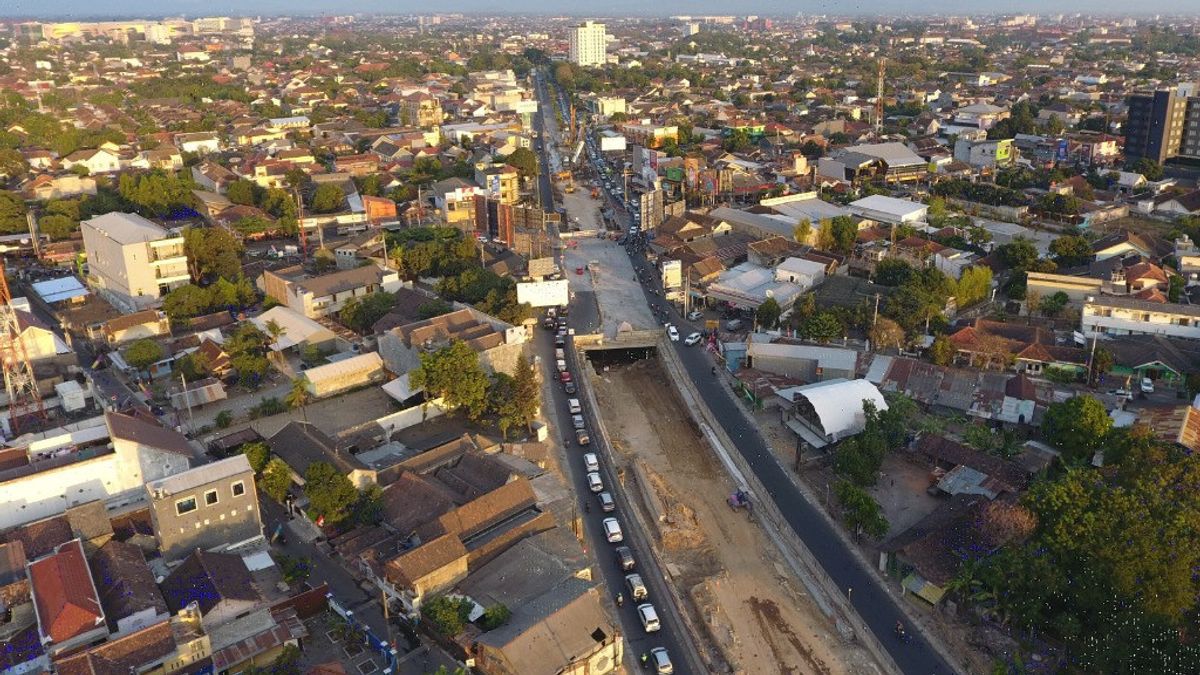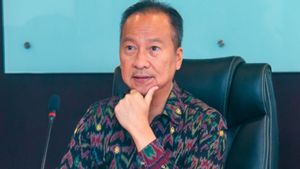JAKARTA - State Sharia Securities (SBSN) or State Sukuk for the 2018-2019 Fiscal Year plays its role as a source of funding. One of them is for the New Yogyakarta International Airport (NYIA) underpass in Kulonprogo Regency, Yogyakarta Special Region Province (DIY).
Reporting from the Ministry of Finance's website, Monday, January 20, the cost required to build this underpass is IDR293 billion. This underpass has been operational since December 20, 2019.
The NYIA underpass is the longest underpass in Indonesia with a span of 1.3 kilometers and consists of a tunnel construction (closed slab) along 1,095 meters.
The construction of this underpass aims to make access to the Java Selatan Coast National Road (Pansela) that connects Purwokerto and Yogyakarta to remain open because the construction of Kulonprogo Airport cuts the old Pansela road.
To anticipate puddles when it rains, the construction of this underpass is also equipped with a pump housing and is covered with a waterstop made of rubber for the concrete walls and floors.
Chairman of the Long Bridge and Road Tunnel Security Committee, Sugiyartanto who is also the Director General (Dirjen) of Highways, said that the existence of the new underpass not only supports vehicle traffic to NYIA Airport, but also encourages economic growth through tourism in the Yogyakarta and surrounding areas which are known for their reputation. arts and culture.
"We are not just building roads or building underpasses (NYIA), but we also give artistic touches or our language is given beautification without eliminating the main function (of the underpass)," said Sugiyartanto.
SBSN or State Sukuk is one of the sources of APBN funds for financing infrastructure projects, in addition to other sources of funds such as foreign loans, domestic loans, pure rupiah, assignments of BUMN and government cooperation with business entities (PPP).
Based on data from the Ministry of Finance in 2018, SBSN project financing began in 2013, and until 2018 it has reached IDR 62.4 trillion. The achievements of infrastructure development financed by SBSN show a growing role every year.
The SBSN project financing mechanism is regulated in PP No. 56/2011, including the criteria for projects that can be financed and the mechanism for proposing them. This SBSN instrument, known as Project Financing Sukuk or Sukuk Project, is used to finance infrastructure projects in an earmarked manner.
Sukuk Projects provide benefits in financing strategic national development in a more independent manner, and optimizing the use of financing funds for more productive capital expenditures / investments.
With the instruments offered mainly to domestic investors, this provides an opportunity for the public to participate in financing the development of government projects.
The potential and better performance of the Sukuk Projects is shown by the larger number of projects (hundreds of projects) each year and spread across 34 provinces. The number and scope of projects each year also continues to grow.
It was recorded that in 2018 there were 587 projects in nine sectors and increased again in 2019 as many as 619 projects in 14 sectors. Funded project sectors include railways, roads & bridges, water resources infrastructure, haj dormitories, public university buildings, marriage centers & Hajj rituals, madrasas, environmental & forestry infrastructure, and laboratories.
In addition, the Sukuk Project has also financed national strategic projects, including the Trans Sulawesi railroad infrastructure, and the southern Java double track, as well as assisting in the application of technological engineering innovations by the nation's children who have received worldwide recognition, as has been done in the process of working on the Railway Tunnel which the first since the Dutch era in Banyumas.
The English, Chinese, Japanese, Arabic, and French versions are automatically generated by the AI. So there may still be inaccuracies in translating, please always see Indonesian as our main language. (system supported by DigitalSiber.id)











